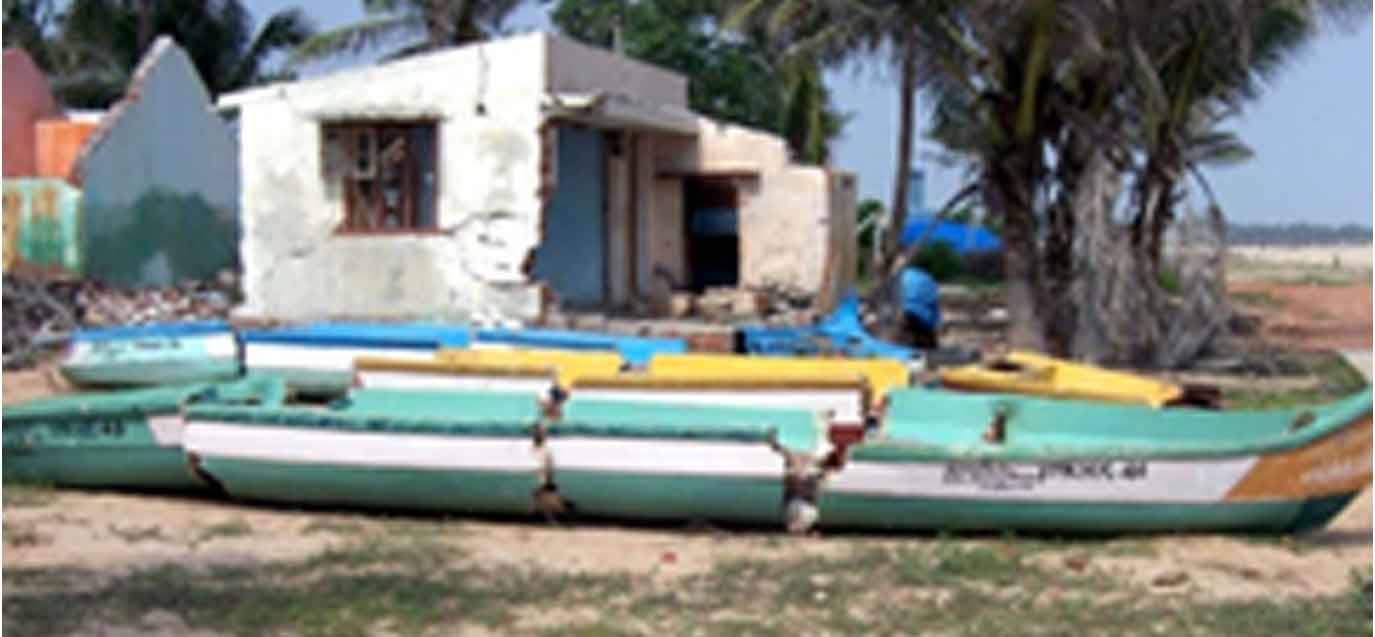
By Sam Bickersteth, Climate and Development Adviser, UK. (Southasiadisasters.net issue No. 201, September 2022)
Loss and damage has been a topic of debate within the international climate regime from its inception. The provision of a mechanism to support insurance against sea level rise in small island states was proposed by Vanuatu even before the UNFCCC was created in 1992. But rising incidents of actual climate driven losses has pushed Loss and Damage into the heart of the climate negotiations process with the establishment of the Warsaw International Mechanism in 2013, and Article 8 of the Paris Climate Agreement which treats Loss and Damage as a stand-alone item and by implication more than just an adaptation issue. A frequently quoted example of real climate losses is the evidence of rising salinity in coastal Bangladesh which makes cultivation impossible. Research (ref 1)) has identified the value of lost rice production in 3 villages to be $1.9m.
The Glasgow Climate Pact (COP26) agreed to establish Loss and Damage Dialogues and called for scaled up “action and support, as appropriate, including finance, technology transfer and capacity-building, for implementing approaches for averting, minimizing and addressing loss and damage”. But many were disappointed that it did not go further and establish a financial mechanism for L&D. However this did not stop certain regional governments and philanthropic organisations from allocating designated funds to loss and damage for the first time.
There is plenty of evidence that climate related losses are real with actions being taken by governments and non-state actors. For example, the Government of Kiribati purchased land on Fiji in 2014 anticipating possible relocation of its entire citizenry of 100,000. And private actors and corporations are having to act as we know from the legal case won against Shell in the Netherlands in May 2021.
As with climate adaptation and mitigation actions there has been a broadening of stakeholders responding to loss and damage to include non-state actors. People, businesses, cities and regions are already taking action in the face of both slow and sudden onset climate losses. Transformative loss and damage that can build the capacities, take action and invest to prevent, minimise and repair loss and damage at sufficient scale requires this wider group of non-state actors. This is recognised in the Glasgow Climate Pact
Urges developed country Parties, the operating entities of the Financial Mechanism, United Nations entities and intergovernmental organizations and other bilateral and multilateral institutions, including non-governmental organizations and private sources, to provide enhanced and additional support for activities addressing loss and damage associated with the adverse effects of climate change (Para 64) (ref 2).
The Marrakesh Partnership For Global Climate Action together with the Race to Zero/Race to Resilience High Level Champions are undertaking a consultation with Non-State Actors on transformative action on climate losses May-November 2022. Non-state actors actions on climate related losses will be consider around the following areas:
References: Rabbani, G., Rahman, A. & Mainuddin, K. (2013). Salinity-induced loss and damage to farming households in coastal Bangladesh. International Journal of Global Warming, 5(4), pp. 400-415. https://unfccc.int/sites/default/files/resource/cop26_auv_2f_cover_decision.pdf
Disclaimer: The views expressed in this piece are those of the author/s and do not necessarily reflect the views or policies of AIDMI.